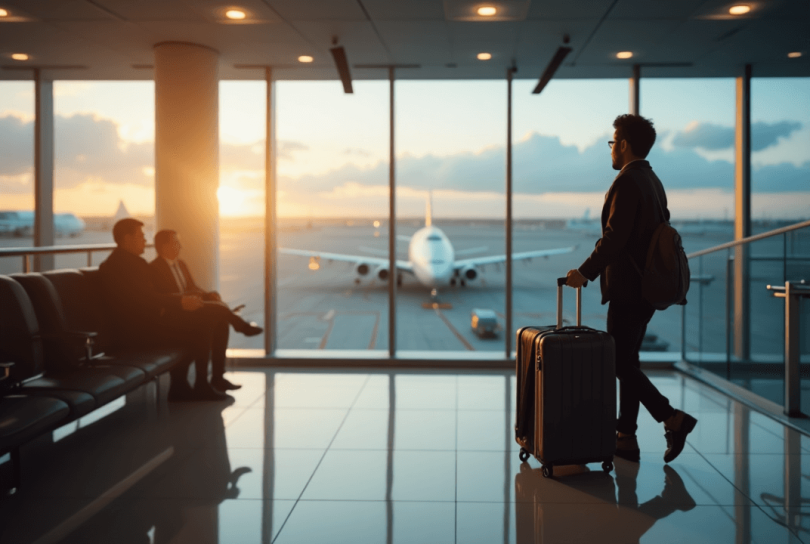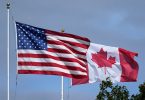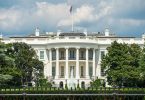Tuesday, May 27, 2025
The trade tariffs imposed by Donald Trump have had significant global effects, influencing the travel choices of holidaymakers worldwide. According to online travel booking data from Trivago, travelers from countries that were hardest hit by these tariffs have become increasingly reluctant to travel to the United States. This shift in travel behavior is a direct result of the uncertainty surrounding the global economy, with many holidaymakers choosing domestic holidays instead. For the global travel industry, these changes have raised concerns about the future of international tourism to the United States, particularly from countries like Canada, Japan, and Mexico. The imposition of tariffs has not only affected trade but has also contributed to a decrease in demand for U.S.-bound travel. Industry experts have noted that the decline in bookings from these countries highlights the broader implications of political decisions on the travel and tourism sector.
Trivago’s findings show that the U.S. has seen significant declines in hotel bookings from travelers in several countries, most notably Japan, Canada, and Mexico. These countries were among the first to feel the impact of Trump’s tariff policies, which targeted them with a 25% tariff on goods starting in February 2018. The tariff war, combined with the political rhetoric surrounding it, has made the U.S. a less appealing destination for many international tourists.
Decline in U.S. Bookings from Key Markets
One of the most notable effects of Trump’s tariffs has been the decrease in bookings to the U.S. from countries like Japan, Canada, and Mexico. Trivago’s data indicated double-digit percentage declines in hotel bookings from these countries. Canadian travelers, in particular, have been outspoken about their frustration with the tariffs, as well as Trump’s suggestion that Canada could be better off as the 51st state of the U.S. The political tension surrounding these issues has led many Canadians to reconsider their travel plans to the United States.
For Japanese travelers, the situation is equally concerning. As one of the largest sources of international tourists to the U.S., Japan has seen a noticeable drop in bookings as the country grapples with the effects of the tariffs and the broader economic uncertainty they bring. The tariffs on goods, coupled with the increased costs of U.S.-bound travel, have made the U.S. less attractive for Japanese holidaymakers.
Mexico, too, has experienced a similar decline in travel to the U.S. following the imposition of tariffs. As one of the United States’ closest neighbors, Mexico’s tourism sector relies heavily on cross-border travel. The tariffs and the political tension between the two countries have caused many Mexican tourists to look elsewhere for their holiday destinations.
The Effect on Germany and Other European Travelers
Trivago also reported a decline in bookings from Germany, with hotel reservations in the U.S. showing a single-digit percentage decline. As Germany is the largest economy in the European Union, the decline in travel from this market is significant. The tariffs imposed by Trump have caused uncertainty in Europe, with the president repeatedly threatening to increase tariffs on EU goods. While Germany has not been as heavily affected by tariffs as some other countries, the trade war has still had an impact on its citizens’ travel plans.
For many Europeans, the U.S. has traditionally been a top destination for leisure travel. However, the escalating trade tensions and the threat of further tariff increases have made Europe more attractive as a holiday destination. The uncertainty created by the tariffs, combined with the rising costs of travel to the U.S., has contributed to a shift in travel preferences.
The UK: A Mixed Impact
For travelers from the UK, the situation has been somewhat different. Despite the ongoing tariff war, the UK has faced relatively light tariffs compared to other countries. Additionally, the UK and the U.S. reached a breakthrough trade deal last month, which has alleviated some of the concerns for British holidaymakers. As a result, the demand for travel to the U.S. from the UK has not declined as sharply as it has in other countries.
However, the broader economic uncertainty caused by the trade tensions has still had an impact on travel behavior. In times of economic uncertainty, many travelers tend to stay closer to home, and this has led to a rise in domestic travel within the UK. Trivago’s data showed a significant 25% year-on-year increase in demand for domestic travel for the months of July to September, as travelers sought more affordable and convenient options.
The “Trump Slump” and the U.S. Tourism Industry
The growing concern over the “Trump slump” in the U.S. tourism industry is a reflection of the broader economic disruptions caused by the president’s trade policies. The National Travel and Tourism Office (NTTO) reported that international visits to the U.S. fell by 11.6% in March compared to the same month the previous year. This decrease in international visitors is troubling for businesses in the U.S. tourism industry, which contributes significantly to the country’s economy.
The decline in international travel to the U.S. is not just about politics—it’s also about the economic impact of tariffs and trade uncertainty. As holidaymakers from key markets like Canada, Japan, and Germany reduce their travel to the U.S., local economies that rely on international tourism are feeling the pinch. Cities and states that have historically depended on tourism dollars are now seeing fewer visitors, which can affect local businesses, hotels, restaurants, and attractions.
Shift Toward Domestic Travel
As international travel to the U.S. declines, many travelers are choosing to explore domestic destinations instead. Trivago’s data also highlighted a trend of increasing domestic travel in markets like the UK, where travelers are opting for local holidays in response to economic uncertainty. For many holidaymakers, staying closer to home offers the benefit of lower travel costs, fewer logistical complications, and a sense of security in uncertain times.
In the UK, domestic travel demand surged by 25% year-on-year for the crucial summer months of July to September. This increase in demand for local holidays reflects a broader trend in which travelers are prioritizing destinations within their own countries over long-haul international trips. With the U.S. becoming a less popular destination, travelers are looking to Europe and other parts of the world, while also rediscovering the appeal of domestic getaways.
Changing Spending Habits and Lower-Star Hotels
Another important shift in travel behavior, particularly in the U.S., is a change in spending habits. Americans, facing economic uncertainty, are opting for cheaper hotels and lower-star categories, as reflected in bookings made via Trivago. Travelers are becoming more conscious of their budgets, seeking affordable alternatives while still enjoying vacations.
The demand for budget-friendly options is not limited to U.S. residents; it reflects a global trend in which travelers are becoming more cost-conscious due to economic uncertainties. As a result, the hospitality industry is expected to see increased demand for mid-range hotels, hostels, and other affordable accommodations.
The Role of Tariffs in Global Travel Dynamics
Trump’s trade tariffs, which affect over 180 countries, have created a volatile environment for international travel. Although many tariffs have been paused for negotiations, the uncertainty surrounding trade policies continues to affect global travel dynamics. Governments and businesses are keen to understand the long-term impacts of these tariffs on the tourism industry, as shifts in travel patterns and consumer behavior are becoming more apparent.
Summary Bullet Points
- The imposition of trade tariffs by the U.S. has led to declines in bookings from countries like Canada, Japan, and Mexico, particularly for travel to the U.S.
- Trivago’s data indicates a rise in domestic travel as holidaymakers seek affordable alternatives amid global economic uncertainty.
Tags: Canada, domestictravel, donald trump, economy, GlobalImpact, japan, mexico, Tourism, Travel, Trivago, U.S., Uncertainty, US tariffs, US Travel











